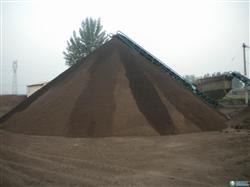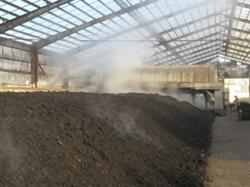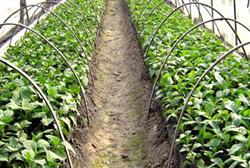Organic fertilizer and compound fertilizer can not replace potash fertilizer

In field crop production, the phenomenon of excessive application of potash fertilizer is generally less, and the phenomenon of potassium deficiency in crops can be found everywhere. In recent years, farmers have gradually realized the role of applying potash fertilizer, but there are still some misunderstandings: first, they think that organic fertilizer can no longer be applied potash fertilizer; second, they do not want to apply potash fertilizer again after applying compound fertilizer; third, they use bio-organic compound fertilizer as total fertilizer, and they do not want to use potash fertilizer, so that crop yields are reduced due to lack of potash fertilizer, and some of them are reduced by a relatively large extent. From the point of view of the main crops, rice lack potassium, the leaf color is dark green to bronze, the heart leaf is straight, the leaf edge of the old leaf is scorched, the stem is easy to lodge and break, the empty grain rate is high, and it is susceptible to hemp leaf spot, sheath blight and so on. The tip and edge of the old leaves of wheat with potassium deficiency are gradually scorched yellow, and the stem is slender and easy to fall. The young leaves of corn turn yellow due to potassium deficiency, and the plants are small and easy to fall. The leaf color of peanut is light green, the leaf edge is scorched and scorched, and the growth of peanut is inhibited. Cotton potassium deficiency leaves have yellow-white patches, leaf tips and leaf edges have brown spots, turn downward, cotton bolls become smaller, and the bolls are not smooth. It can be seen that potash fertilizer is very important in agricultural production. At present, some farmers still have some misunderstandings about the input of potash fertilizer, one is that there is enough potash fertilizer in organic fertilizer, and the other is that there is potash fertilizer in compound fertilizer, so there is no need to apply potash fertilizer. On the other hand, some farmers feel that potash prices have soared so fast in recent years that it is not cost-effective to invest too much. Because of these misunderstandings, it hinders the reasonable investment of potash fertilizer. According to the available scientific and technological data, in organic fertilizers, the potassium oxide content in human feces and urine is 0.2%-0.3%, pig manure is 0.44%, cow manure is 0.15%, chicken manure is 0.9%, and duck manure is 0.6%. In the air-dried straw of crops, the general potassium oxide content is about 1%, the highest corn stalk is 2.28%, and the lowest barley glume is 0.28%. In the high content compound fertilizer of chemical fertilizer, the content of potassium oxide is 15%-16%, which is equivalent to 12.5-13.45 kg of potassium chloride or potassium sulfate. From the point of view of the potassium demand of crops in the field, generally, potassium chloride or potassium sulfate should be applied per mu, but for insect-resistant cotton, the amount of potassium should be more, not less than 25,30kg per mu. The analysis of the above data shows that although organic fertilizer plays a very important role in improving farmland soil properties and soil fertility, its potassium fertilizer content is limited. In the high content compound fertilizer of chemical fertilizer, there is still a certain distance between the proportion of potash fertilizer and the potassium requirement of crops. Therefore, in guiding agricultural production, potash fertilizer must be replenished in time according to the potassium demand of different crops, and organic fertilizer and compound fertilizer should not be used instead of potash fertilizer.
- Prev

How to make self-made organic fertilizer?
The ripening of organic fertilizer changes in two aspects through the activities of microorganisms: on the one hand, the decomposition of organic matter increases the effective nutrients in the fertilizer; on the other hand, it makes the organic matter in the fertilizer change from hard to soft. texture from uneven to uniform, and in the maturity of weed seeds and bacteria, insect eggs.
- Next

Technique of planting Coprinus comatus under black fungus by hanging
Interplanting Coprinus comatus in pepper field is a good method to imitate wild cultivation of Coprinus comatus, which can save the cost of building mushroom house, does not occupy space, and can greatly improve the economic benefit per unit land area. Generally, after the pepper is planted, trenches are opened, materials are laid and bacteria are spread in the middle of the pepper row. For managing and harvesting mushrooms.
Related
- Fuxing push coffee new agricultural production and marketing class: lack of small-scale processing plants
- Jujube rice field leisure farm deep ploughing Yilan for five years to create a space for organic food and play
- Nongyu Farm-A trial of organic papaya for brave women with advanced technology
- Four points for attention in the prevention and control of diseases and insect pests of edible fungi
- How to add nutrient solution to Edible Fungi
- Is there any good way to control edible fungus mites?
- Open Inoculation Technology of Edible Fungi
- Is there any clever way to use fertilizer for edible fungus in winter?
- What agents are used to kill the pathogens of edible fungi in the mushroom shed?
- Rapid drying of Edible Fungi

